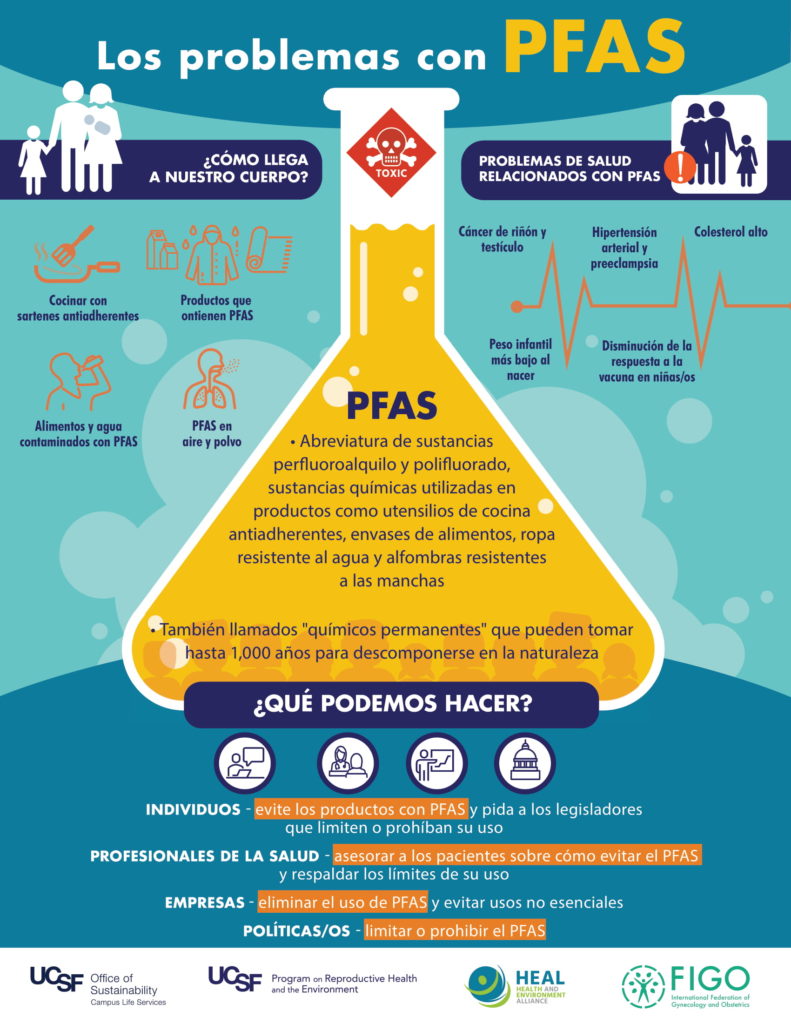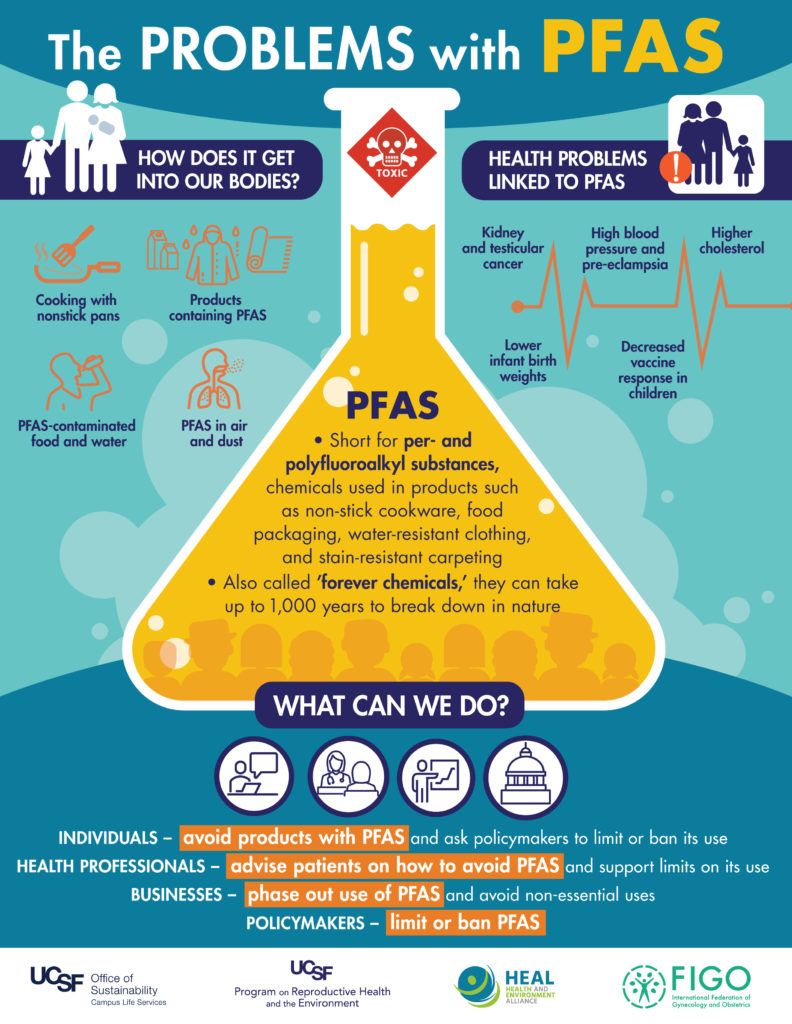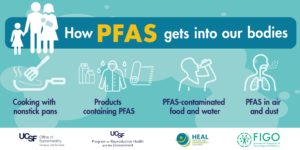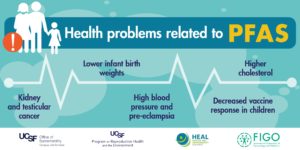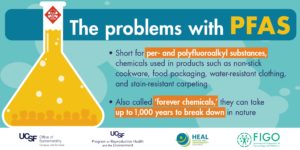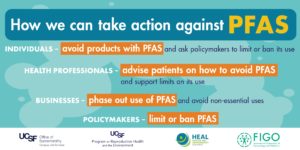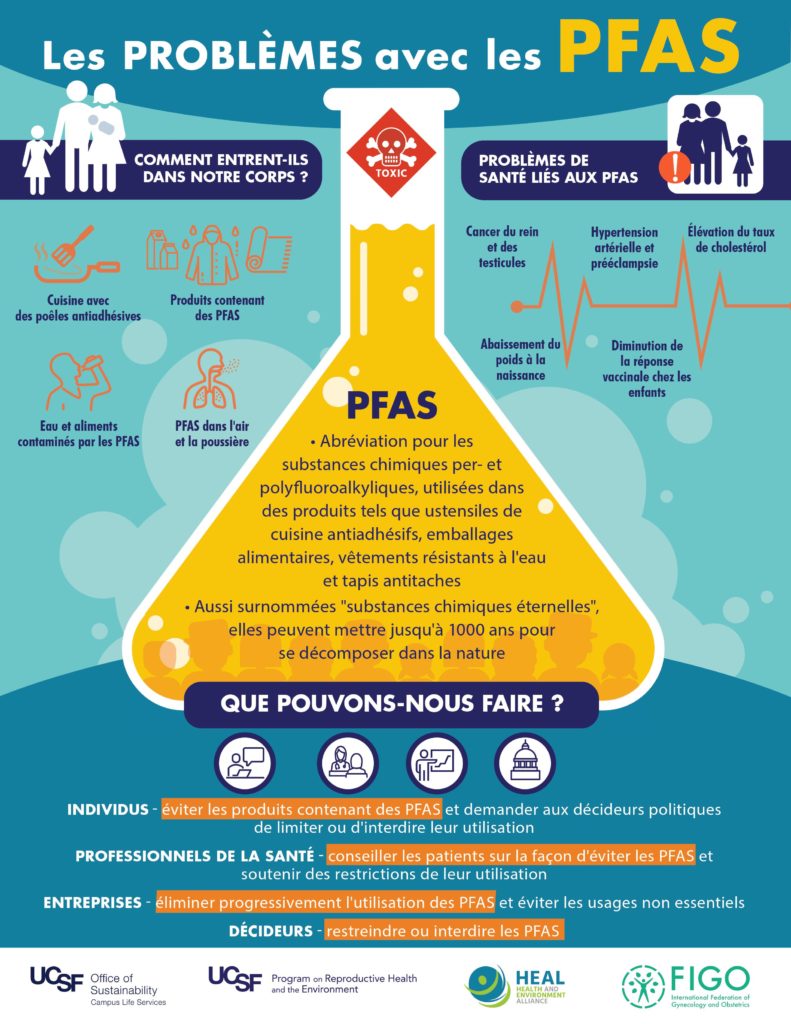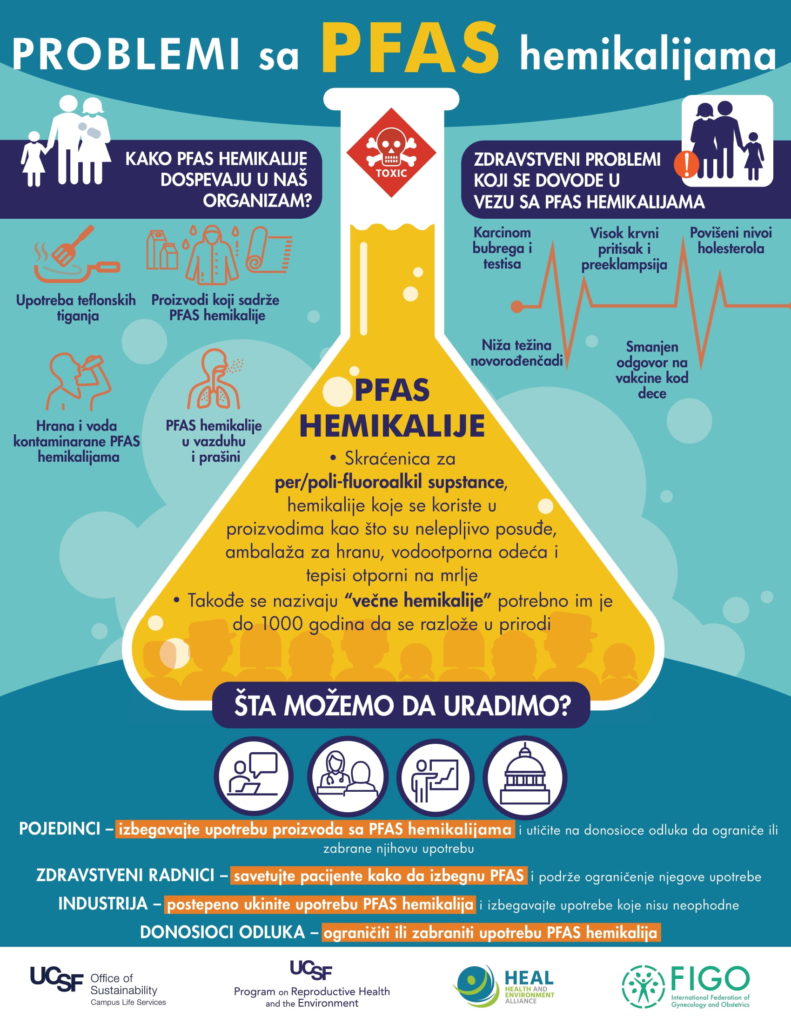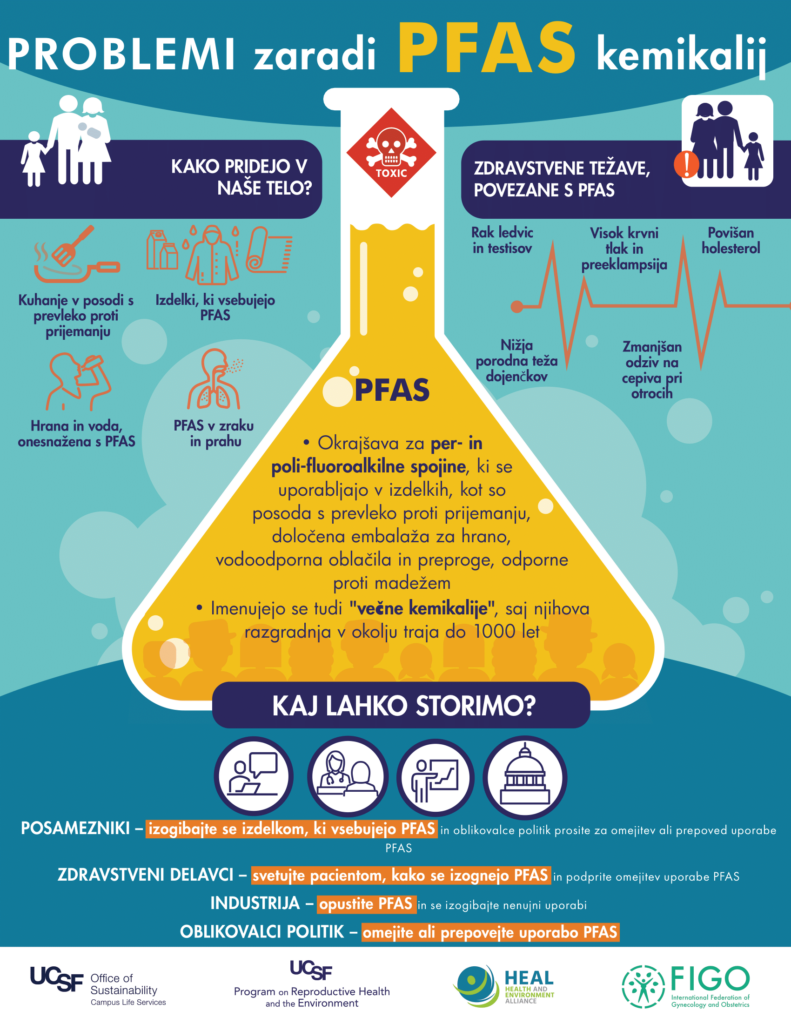HEAL has sent a letter to permanent representations of EU member states and EU environment ministers today, calling on their support and leadership to ensure that previous commitments made for a high level of health and environment protection will remain at the heart of the 2024-2029 EU Commission mandate, including delivering on the health protective measures promised in the Chemicals Strategy for Sustainability (CSS) and the revision of REACH with no further delay.
Exposure to PFAS (per- and polyfluoroalkyl substances), a class of more than 4,700 widely-used synthetic chemicals, constitutes a global threat to public and environmental health. The International Federation of Gynecology and Obstetrics (FIGO), the Health and Environment Alliance (HEAL) and the University of California in San Francisco (UCSF) have joined forces to call for immediate action against these “forever chemicals”, to protect reproductive health, fertility and human development.
Across the world, policy-makers are slowly waking up to the global threat that PFAS pose to public and environmental health. But not enough action is yet being taken to stop ‘forever chemicals’ from entering and accumulating in our environment and to adequately protect people and future generations from being exposed to them.
FIGO, HEAL and UCSF have developed joint materials to help health professionals take action and contribute to advocacy and awareness-raising on PFAS. This includes:
- An infographic on the problems with PFAS, including health impacts, that is available in English, Dutch, French, Italian, Spanish, German and Serbian.
- A fact sheet, outlining exactly how PFAS chemicals affect women, pregnancy and human development, also in collaboration with the Natural Resources Defence Council (NRDC). Available in English, Dutch, French, Italian, German and Spanish.
FIGO new position statement calls for removal of PFAS
These new materials support a statement from the FIGO Committee on Reproductive and Development Environmental Health that was published today, setting out the health concerns associated with PFAS exposure and calling for its removal.
With this statement, FIGO underlines that “global health should be our guiding light. We recommend that PFAS exposure to populations should end with a full global phase out.”
FIGO recommends governments to:
- Prioritise legislation to phase out all non-essential uses and manufacturing of PFAS, starting with uses that are likely to result in greater exposures to pregnant women and children.
- Require transparency on PFAS use.
- Invest in safer alternatives for essential uses and in improved monitoring, clean-up and disposal technologies.
- Mitigate ongoing exposure to PFAS by cleaning up polluted environmental resources and securing storage of highly contaminated PFAS waste until a safe destruction method has been determined
- Require regulatory assessment of PFAS, including toxicological and exposure assessment, as a class.
The health problems with PFAS and where you can find them
From frying pans and cosmetics to paper food packaging and clothing, PFAS (per- and polyfluoroalkyl substances) are widely used across consumer products and industrial applications. PFAS are highly persistent compounds that accumulate in our environment and contributed to continued human exposure. Scientific evidence suggests that exposure to PFAS can cause serious health impacts, among which kidney and liver damage, cancer, impaired fertility and immunity, and adverse pregnancy outcomes. Most recently, scientists have found associations between exposure to PFAS during early pregnancy and increased risk of miscarriage during the first trimester. The most studied PFAS also persist in human tissues for very long period of times.
A recently released study, undertaken by Czech NGO Arnika in cooperation with the HEAL, CHEM Trust and six other non-profit organisations, shows that forever chemicals are widespread in disposable food packaging from popular fast-food chains across Europe.
Communities negatively affected by PFAS
Local communities are especially affected by the production of PFAS chemicals. The Veneto region in North-East Italy is an example of how PFAS has raised major concerns for towns and cities across Europe. As a result of activities from a local chemical producer, groundwater, superficial waters and tap water was found to be contaminated with PFAS. But local groups like Mamme No PFAS are standing up to this injustice, demanding policy-makers to implement laws that block the release of toxics into the environment and damage health.
EU action on PFAS
Under the Chemicals Strategy for Sustainability, the European Commission has taken significant commitments to address the use of and contamination from PFAS within the European Union Strategy – including the promise to phase out all non-essential uses of PFAS. If properly implemented, this promise could be an important game-changer to prevent further PFAS pollution and related health damage for current and future generations.
Download our social media tiles.
- Infographic “Het probleem met PFAS”
- Fact sheet “Hoe PFAS-chemicaliën vrouwen, zwangerschap en menselijke ontwikkeling beïnvloeden”
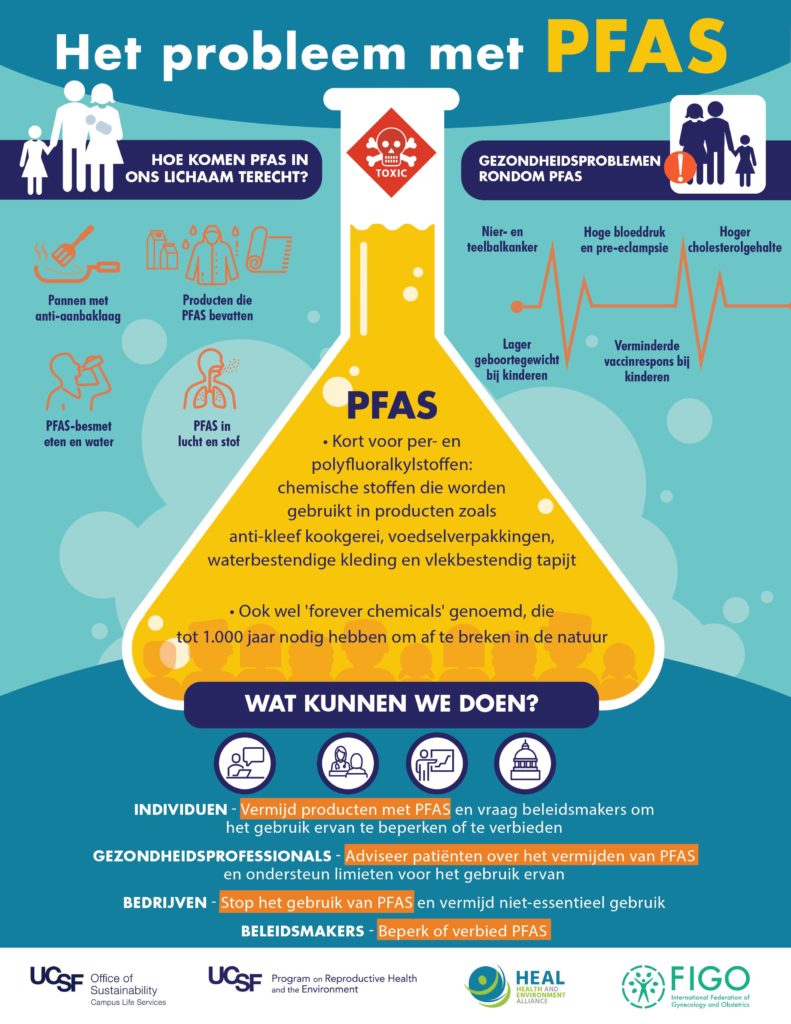
- Infographic “Les problèmes avec les PFAS”
- Fact sheet “Comment les PFAS affectent les femmes, la grossesse et le développement humain”
- Infographic “Das PFAS-Problem”
- Fact sheet “Wie sich PFAS-Chemikalien auf Frauen, Schwangerschaft und menschliche Entwicklung auswirken”
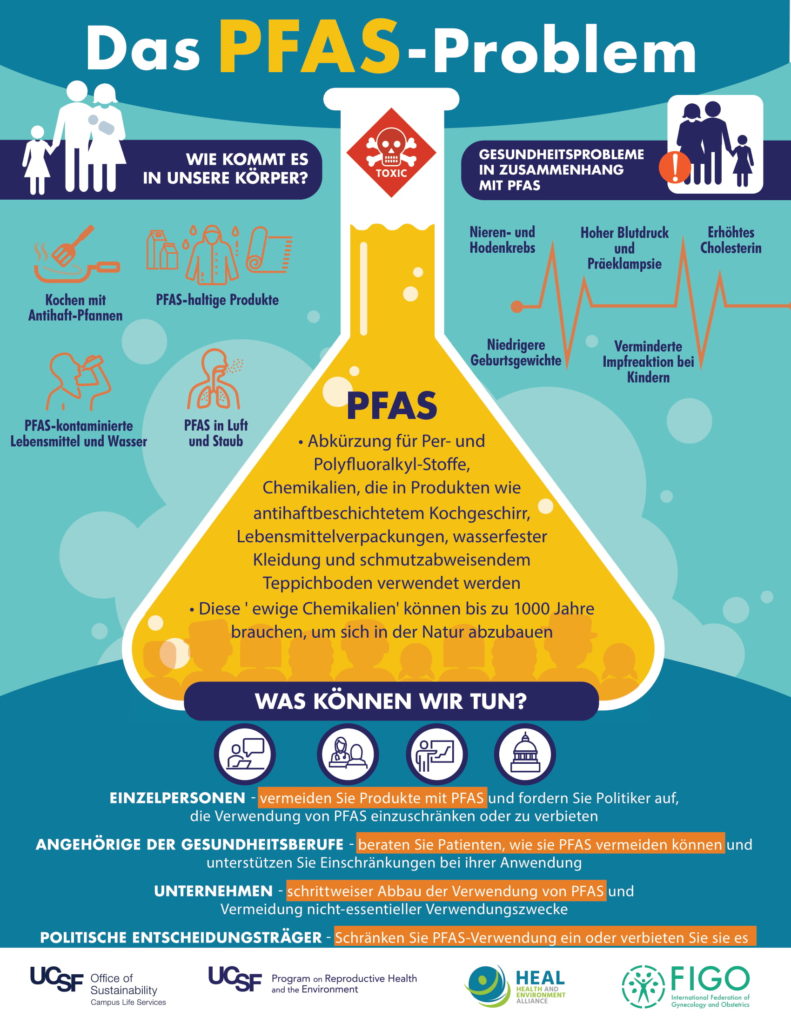
- Infographic “I problemi dei PFAS”
- Fact sheet “In che modo i composti PFAS si ripercuotono su donne, gravidanza e sviluppo umano”

- Infographic “Los problemas con PFAS”
- Fact sheet “El efecto de las PFAS en las mujeres, el embarazo y el desarrollo humano”
